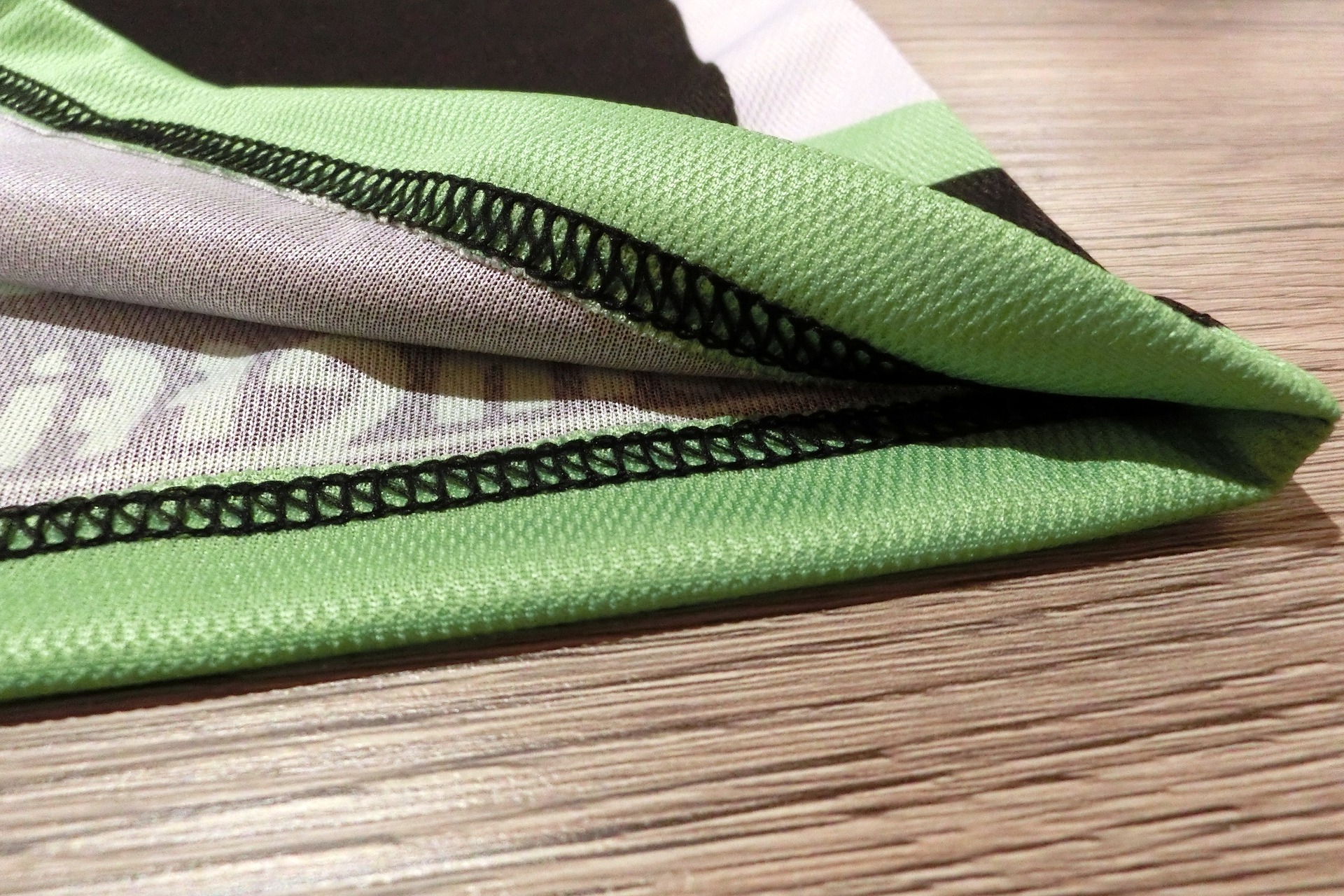Is Polyester Vegan?
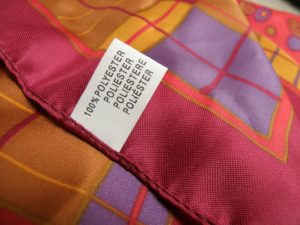
Contrary to popular belief, veganism is not just about what you eat or drink. It impacts every facet of your life, including what you wear. With polyester being such a common fabric for apparel, upholstery, bags, and shoes, you might wonder, “Is polyester vegan?”
What is Polyester?
Polyester is a kind of fabric derived from petroleum (crude oil). It’s one of the most common apparel fibers globally, often mixed with other fibers/yarns like cotton, rayon, and spandex.
While there are various weights and qualities of polyester as a fabric, it’s generally very durable. As it’s a synthetic fabric, it’s also very cheap.
Polyester is common in clothing, shoes, undergarments, handbags (mostly as a liner), furnishing, home decor, and shoes.
What is Polyester Made Out Of?
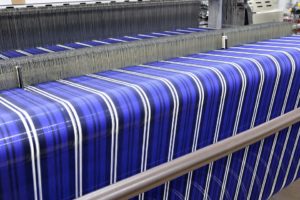
Polyester is a product of petroleum, which is a hydrocarbon obtained from the surface of the earth both on land and offshore. Its full chemical name is polyethylene terephthalate.
Although the main source of polyester is petroleum, there are non-petroleum sources as well. The polyester fiber may come from recycled plastic, waste, and even some agricultural crops.
Usually, the garments and objects made from polyester only mention the percentage of it in the composition of the fabric. They don’t mention where it has come from.
What Can Polyester Be Used For?
Polyester can be used for a variety of things. From the football jersey you wear to matches to the curtains in your living room, a lot of the fabrics in apparel and furnishing are polyester-based.
Since polyester is long-lasting and durable, it’s often used for things that need durability. Specifically, the fabric in furniture and home decor is polyester a lot of the time.
In apparel, almost every kind of clothing item is available in polyester or a mix of it with other fibers. For example, t-shirts, pants, leggings, underwear, jackets, and hats are often made with polyester fabric.
In homes, the upholstery for chairs and couches can be polyester. Even lampshades, curtains, bedsheets, pillow covers, bedspreads, table runners, mats, and rugs can have polyester in their fabric or lining.
Is Polyester Synthetic?
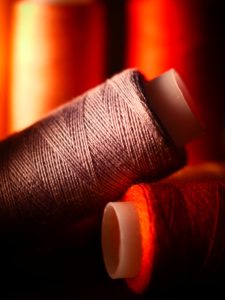
Yes, polyester is a synthetic fabric as it comes from crude oil. It’s not like cotton or pure silk that’s natural. That said, some polyester may be considered natural as it comes from cutin, a component of plant cuticles.
Can Polyester Be Ironed?
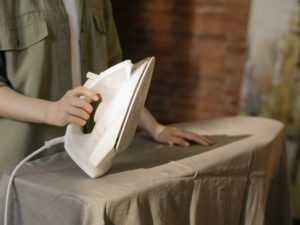
Polyester can be ironed, but it doesn’t have a high tolerance for heat like cotton or linen. Therefore, you must iron at lower temperatures.
Most irons these days mention the fabrics and their corresponding temperature range. Also, the garment may have instructions for ironing, often expressed as a symbol or temperature range. In case your iron doesn’t have such labeling, it’s best to keep the iron heat in the middle range and test a small area before proceeding.
One of the qualities of polyester is that it irons very easily at the right temperature.
Can Polyester Be Bleached?

Bleach is often too harsh for polyester fibers. It can fade the color or even damage the integrity of the fibers, making the garment less long-lasting after excessive use of bleaching. It’s best to avoid bleaching altogether.
However, there are some soft bleach products created specifically for polyester fabric. Those may be used but only occasionally. These are usually oxygen bleach agents.
Can Polyester Be Tie Died?

Polyester can be tie-died, but depending on the composition and quality, it may not absorb the colors very well. Even 100 percent polyester fabric has low color absorbency for tie-dye in comparison with organic fabrics like cotton.
For tie-dying polyester, make sure to use boiling water and strong, high-quality dyes. This will help improve the absorbency of dyes.
Is Polyester Vegan?
Polyester is technically vegan as its main components are not animal-based. It largely comes from crude oil, which is a synthetic material.
In many garments, polyester is used with animal-derived fabrics such as wool, leather, and cashmere. Such garments are, of course, non-vegan.
When it comes to polyester being vegan, it’s a little more complicated. The production of polyester may harm animals and the environment, which is why its vegan state is questionable for many vegans.
Is Polyester A Sustainable and Environmentally Vegan-Friendly Textile?
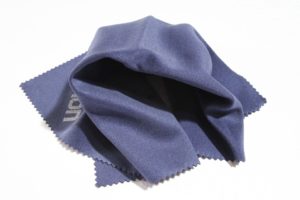
Polyester, as a synthetic fabric, is not very eco-friendly. Since it’s a product of crude oil, it uses toxic petroleum chemicals during its production, which often end up in our waterways. Also, polyester is mostly non-biodegradable as it can take up to 200 years to decompose.
It cannot be ignored that as an extension of the oil industry, polyester manufacturers are also the party responsible for the pollution and carbon emissions the oil industry produces.
That all said, some aspects and qualities of polyester are eco-friendly to some extent. For instance, polyester uses less water for washing and dries quickly. In contrast, cotton uses more water when washed. Moreover, its durability also contributes, as the poly garment or accessories can be used for quite a long time.
As a vegan, it’s at your discretion whether you consider the negatives more impactful or the positives.
Cruelty-Free Fabric Guide (Choose These vs. Non-Vegan Choices)
Animal cruelty is also a major concern in the fashion industry. While animal products may not directly be used but the by-products and wastes may contribute to animal and marine life loss.
If you want to purchase and use cruelty-free fabrics only, go for the following fabrics that are vegan:
Acrylic
Bamboo
Broadcloth
Cambric
Chiffon
Cork
Denim
Gingham
Hemp
Lame
Linen
Microfiber
Modal
Muslin
Organic cotton
Percal
Sateen
Seaweed
Tapa
Tencel
Velour
Voile
Wrap Up
So is polyester vegan? Yes, it’s vegan, but it does have some harmful impacts on the environment. The best course of action is to buy from trusted brands that participate in offsetting carbon emissions. There are many sustainable brands that use polyester as well.
More importantly, make sure to get the best out of polyester by taking care of the fabric and using it for as long as you can, and then recycling it by donating it to a thrift store.

